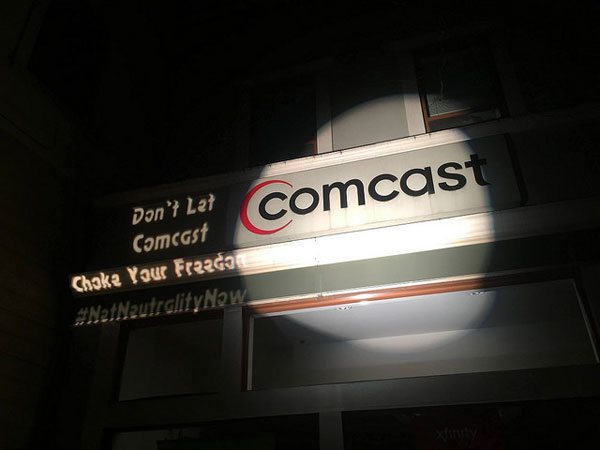
November 21, 2017; New York Times and the Washington Post
Yesterday, Federal Communications Commission Chairman Ajit Pai announced he had circulated among the members of the commission a draft version of his Restoring Internet Freedom Order. The order would roll back protections put into place two years ago to make sure Internet service providers (ISPs) treat all online destinations equally. Pai argues that these “net neutrality” provisions stifle innovation, and he has long promised to deregulate in this area.
In 2015, the FCC under then-chair Tom Wheeler asserted that broadband high-speed Internet access qualified as a Title II utility under the Telecommunications Act of 1996, as essential to modern life as phone service or electricity. That classification prohibits ISPs from engaging in blocking, throttling, or paid prioritization of specific websites, maintaining the state known as “net neutrality.” This ruling withstood a number of legal challenges, and even as the Republicans on the Commission rallied with representatives from Comcast, AT&T, and Verizon to undo it, popular support for the measure remained strong, from advocacy groups like the Electronic Freedom Foundation and Fight for the Future to Internet giants like Netflix.
However, after months of collecting comments on the FCC website—some of which New York Attorney General Eric T. Schneiderman says may have been generated falsely and automatically by net neutrality opponents—Pai is moving forward. In a statement, Pai said:
Sign up for our free newsletters
Subscribe to NPQ's newsletters to have our top stories delivered directly to your inbox.
By signing up, you agree to our privacy policy and terms of use, and to receive messages from NPQ and our partners.
Under my proposal, the federal government will stop micromanaging the Internet. Instead, the FCC would simply require Internet service providers to be transparent about their practices so that consumers can buy the service plan that’s best for them and entrepreneurs and other small businesses can have the technical information they need to innovate.
Additionally, as a result of my proposal, the Federal Trade Commission will once again be able to police ISPs, protect consumers, and promote competition, just as it did before 2015. Notably, my proposal will put the federal government’s most experienced privacy cop, the FTC, back on the beat to protect consumers’ online privacy.
Pai says the final version of the order will be released today, more than three weeks prior to the vote on December 12th at the FCC’s next open meeting. Also scheduled for discussion is a revision of the nationwide cap on ownership of television stations, the lifting of which will surely advance the consolidation of media outlets in the US. Once the details become public, you’ll see more coverage here.—Jason Schneiderman













